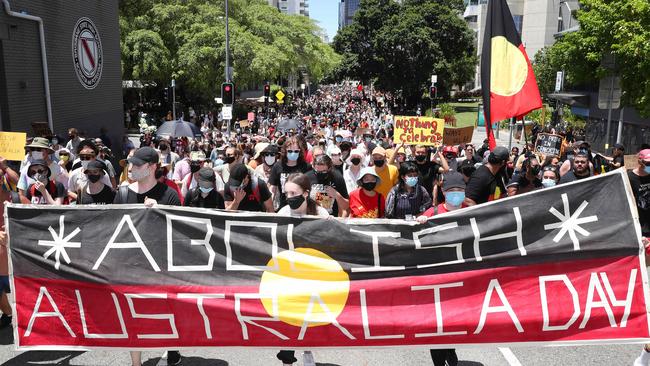
Change the date to what, though?
The first of January, say some. To commemorate the inauguration of federal nationhood in 1901. Seems logical: it’s the date when we officially launched ourselves as a self-governing unified polity. And not just any self-governing polity. One deploying some of the most advanced techniques of mass democracy then devised. The foundation of our modern nation under the Federation Arch of radical democracy works a treat as a national day … except for the fact that the first meaningful legislation the 1901 parliament enacted was the White Australia policy, namely the exclusion of would-be immigrants because of their race.
So, not so great. True, that same parliament became the first anywhere in the world to enact the rights of women to both vote and stand for election themselves. Which is just the sort of democratic achievement any self-respecting national day of foundation should associate itself with … except for the fact that the very same legislation – and the same legislators – simultaneously excluded Indigenous people and non-whites from voting rights.
There are other options, generally hopping later and further down the national chronology in order to find an inclusive enough achievement anniversary for the whole country to sign up to, without causing argument or offence.
We keep running into the same problem, though.
Wherever we look, we will look in vain for the completely pure anniversary date, unsullied by violence, exclusion or simply negative associations for someone, somewhere. Once you set as the guiding motive the need to avoid causing offence, you might as well give the game away.
The desire to avoid giving offence is laudable, of course. It’s one of those fundamental traits which makes society possible.
So too, though, is the existential need for any political community to be able to assert its own legitimacy. In telling the story of how this modern settlement began, we are telling a story of origins. But by telling the story of origins, we are making an assertion of legitimate power and moral order – of sovereignty.
By sovereign I mean the sole and ultimate legitimate authority of a country. Sovereignty itself is a tricky word, subject to wildly divergent descriptions. I mean a more common-or-garden sense of the word, which most people infer by the word: the supreme and ultimate power in the land.
So – who’s sovereign? My rudimentary idea of sovereignty is that there can only be one real sovereign power, really. Or only one at any point in time, even if you then want to divide that sovereignty and share it about a bit – some to the judiciary, some to the legislature, this much to the executive, and so forth. But Sovereignty is Highlander; there can be only one. The rest is everyone being polite and trying not to offend anyone.
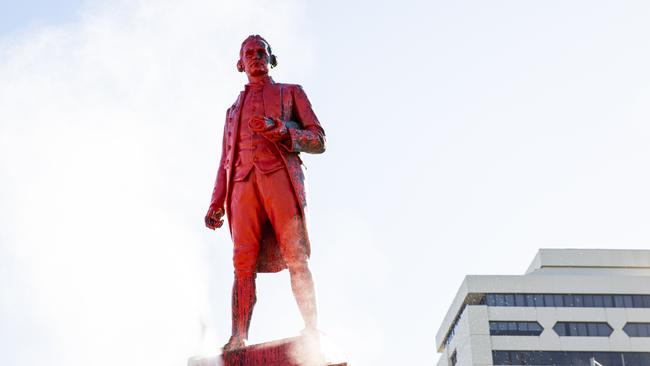
We – and by “we” I mean modern, contemporary Australia, all of us – are sovereign here. Here’s the kicker, though. We became sovereign through historical violence and dispossession. The society which was here previously ceased to be sovereign controllers of the continent. The 1992 Mabo decision articulates it: from the arrival of British settlers, settlement and government in 1788, a new sovereignty began to replace it, and eventually pushed it out. And although the Wik High Court case in 1996 allowed for special cases where Indigenous occupation rights could coexist and continue alongside pastoral leases, note that it was the High Court of Australia, established by federal parliament in 1903, operating in the British common law and Western legal tradition, that got to decide the point.
This is the basic violence which made our contemporary society, its democratic institutions, its open society, its pluralist ethos, its many different groups, interests and stakeholders, including Indigenous Australians. This is what was begun, and built, which we have all inherited, and live in today. Like it or hate it, this is our world now. And it begins with this basic conquest. This is the fundamental moral ambiguity at the heart of Australia Day, or any other day which sets out to recognise origins and establishment.
In the essay How Sorry Can We Be?, historian John Hirst argued it was a progressive “liberal fantasy” to think that it was possible to have our cake and eat it. Namely, to establish a modern, prosperous society like the one we benefit from living in today without a fundamental act of dispossession.
Hirst quoted Rudyard Kipling on the question of imperial bad behaviour. “A man might just as well accuse his father of a taste in fornication,” Kipling wrote, as “a white man mourn over his land’s savagery in the past”.
Kipling’s point, Hirst wrote, is “that your origins lie in dirty deeds, but you cannot regret or be sorry for them because without them you would not exist where you now do”. Hirst applied this to Australia’s modern foundations, and pointed out it was unavoidably predicated on Indigenous dispossession. How sorry can we be, really, he wanted to know. We can insist that “a position of hard realism about the nation resting on conquest” shouldn’t justify any lack of empathic engagement with the consequences of these actions. It is nonetheless “morally impossible for settler Australians to regret or apologise for the conquest on which colonial Australia was built”.
This makes me extremely uncomfortable to think about. I see his point, though. It’s close to inconceivable that any modern nation could have arrived at that moment of global history, established fundamentally harmonious relations, and begun to occupy the land. Hunter gatherer society, the most successfully enduring form of human living on the planet for tens of thousands of years, had been progressively demolished and destroyed everywhere else in the world, and then it began to happen here, from 1788. Sovereign possession of the soil was violently effaced.
The land was taken and expropriated. And this expropriation made possible a modern society.
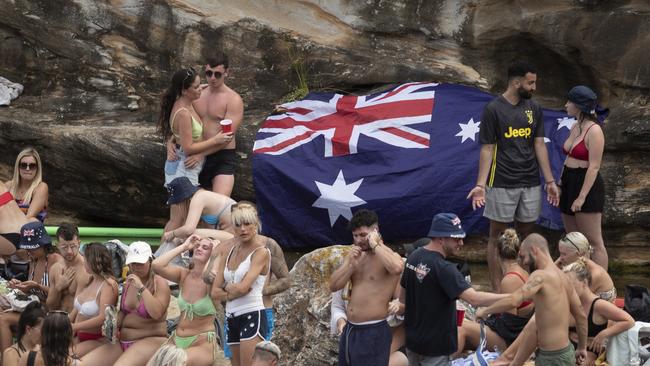
The fantasy, in Hirst’s eyes, was imagining that it could have happened differently. With treaty, without treaty, catastrophic loss and violent expropriation ensues. Our dilemma results from a tragedy: two different goods, two different forms of society, came into collision. Neither of them was “bad”. Whichever side loses, tragic loss ensues.
The fantasy that we could have had our cake and eaten it, that there could have been a morally pure foundation which didn’t break and destroy the previous society, Hirst calls the liberal or progressive fantasy. But there is also another fantasy in play. Whereas the fantasy of the progressives is that it was possible to establish a harmonious, equitable, modern, prosperous society which accepted and respected completely Indigenous claims of prior ownership, occupation and sovereignty, and that it could be done without violence, the conservative fantasy is that no real violence occurred at all. Or, alternately, that any violence and killings which didn’t occur weren’t tragic, because Indigenous peoples had only rudimentary, primitive culture, and no claims to civilisation. Sad maybe, but inevitable. Not tragic.
The view of the vast majority of 19th century settlers was fairly unadorned on this point: excepting a small if significant minority, it was that the more advanced and better was displacing the outmoded and brutish. Case closed, for both ordinary folk and opinion-makers. And the metropolitan and urban colonial citizens kept pouring in as the decades advanced – and built the cities and suburbs which so many of us live in today, put down the main roads and railway lines, practised the Rule of Law, free speech and democratic self-government, established the trade unions and newspapers, the galleries and public libraries we still use and enjoy. They created, in other words, so much of our own world that they could claim us as their own.
Hirst would argue that without that fantasy of superiority which allowed them to so frankly and honestly shrug off any claims against their sovereign right to occupy the territory, this country we live in wouldn’t be known. And neither would we.
For us, now, in 2022, these various fantasies are examples of different styles of forgetting which we have adopted, and which we argue and fight for. They remind us that history, in the words of Raphael Samuel, is a fundamentally “organic source of knowledge … whose sources are promiscuous, drawing not only on real-life experience but also memory and myth, fantasy and desire”.
But there is a problem, I think, when fantasy is the dominant player, and committed to killing off all rival fantasies, and maybe even different historical arguments which question its mythically singular and sovereign monopoly of the public conversation. The historical fantasies of either left or right, given sole authority, destroy any potential for decent conversation. And if an open democratic polity can really claim any truly foundational premise, it’s a commitment to the free play of different voices. Voices which represent different groups, different interests, different ideals, not just the one single droning orthodox monotone. “Democracy is government by discussion, and government by debate,” Geoffrey Blainey said in 2021, criticising the lack of it in our response to Covid, and it applies here too.
Which is why I think we should keep the date. January 26, the day Captain Arthur Phillip and his ragtag ugly bunch of unlikely world-makers arrived in a harbour which was not theirs, which was already held by sovereign peoples, but which they immediately claimed and began the long, pitiless work of making steady inroads across and into, is the date that should stay, because while it will continue to be for many just a good chance to have one last long weekend before the end of summer, before packing away the fishing gear, the BBQ, and getting the kids back to school, it is the best chance we have to engage in difficult conversations.
As we argue about it, back and forth, and debate it, forward and back, what the meaning of these fundamentally ambivalent foundations could be, and while, (thank god), none of us in this conversation are pure, nor beyond redemption, we may at some point get better at actually listening, and actually speaking.
We may get better at this national conversation. Not just with each other, but with the past and future as well.
Alex McDermott is an independent historian who has produced television documentaries and curated exhibitions. His latest book, Australian History for Dummies (second edition), will be published in May 2022.


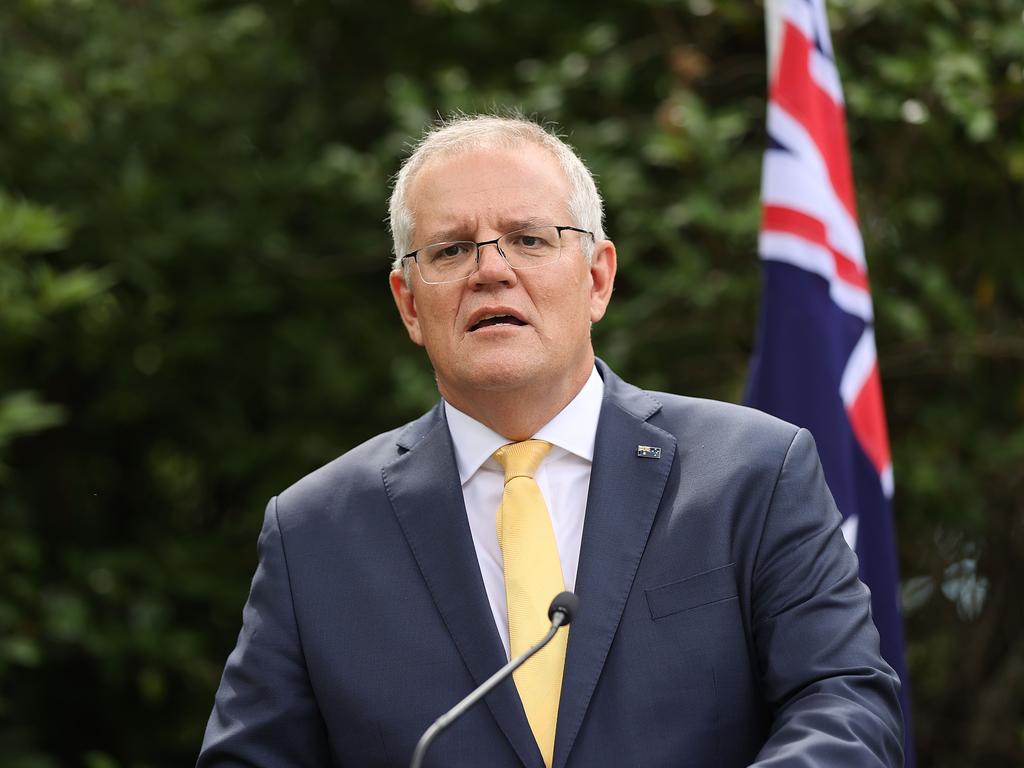
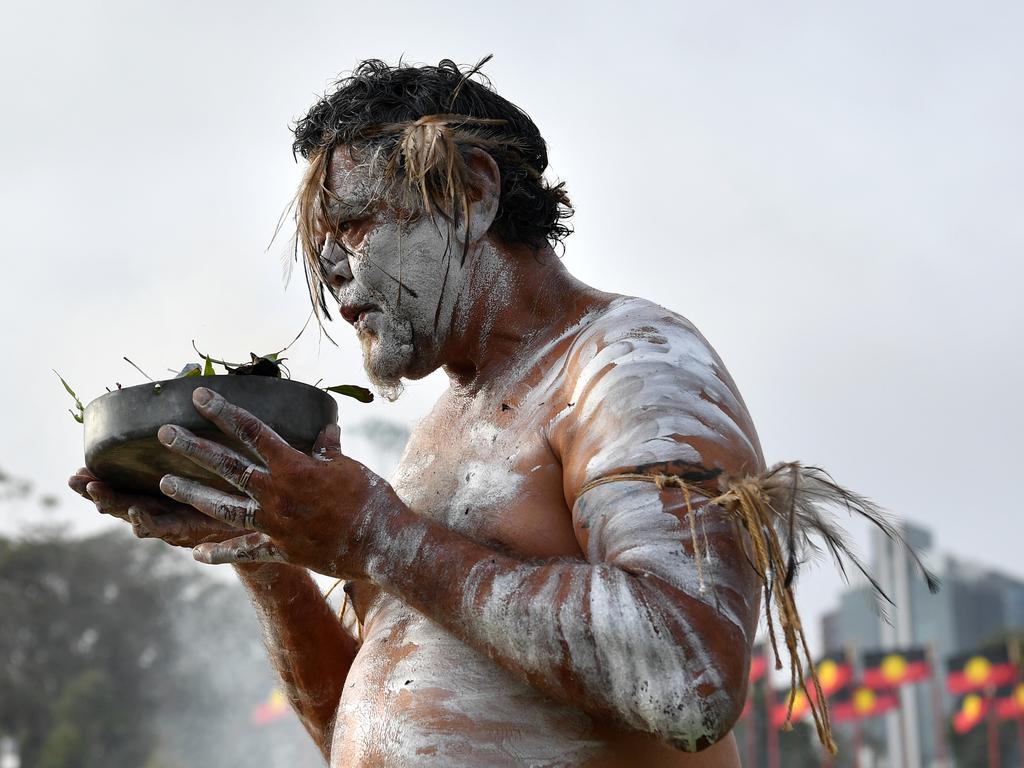



Now that Australia Day has come and gone it’s a good opportunity to take stock. After all, it’s hard to find a large business, organisation or cultural institution that is not committed to changing the date of Australia’s national celebration day. Even Collingwood Football Club has this year jumped on board. Exactly how many of their members and supporters agree has not been ascertained. Their 2022 membership stickers are emblazoned “Made By Many”, but that doesn’t seem to have earned them voting rights on this decision. Opinion-makers and the cosmopolitan elites are on the march, and the rest can read the tea leaves. The tea leaves spell fait accompli.